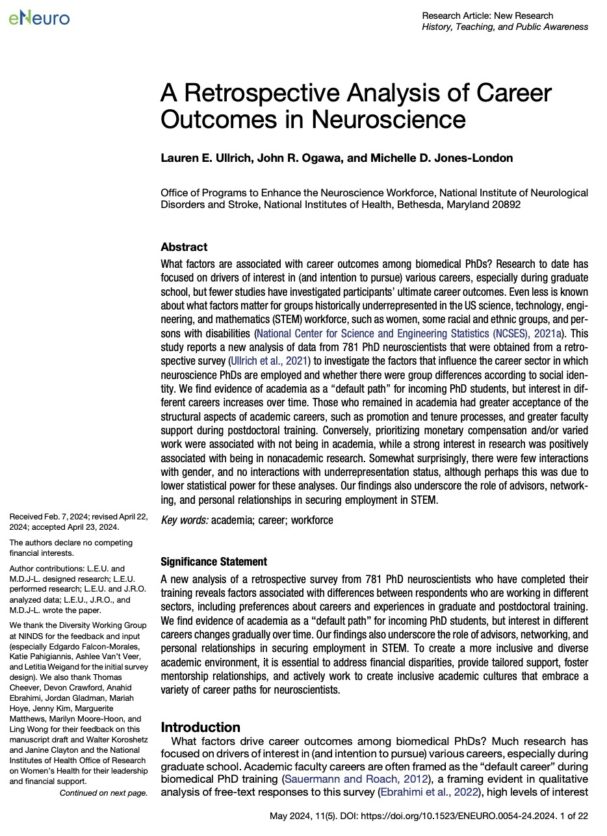Recommended audience(s):
PhD students, PhD graduates
Review prepared by:
Jae-Eun Shin, Ph.D
This article analyzes the career outcomes of 781 neuroscience PhD graduates who have applied for or been appointed to NINDS grants, considering factors such as career interests, training experiences, personal values, and social identity. It provides specific statistics on how career interests change over the course of a PhD, revealing an interesting trend: while academia is initially considered the default path, interests diverge over time due to factors such as financial considerations and personal values. Notably, prioritizing monetary compensation was strongly associated with leaving academia.
The study also examines gender and underrepresentation differences in career paths. It found that underrepresented women were more likely to hold science-related non-research positions, while well-represented men were more likely to be in research-related roles. Regarding factors influencing career choices, those in academia valued job security and structural aspects such as promotion and tenure, whereas those who pursued non-academic careers prioritized job diversity and financial compensation.
The study also identified predictors of different academic career paths: PhDs with a strong interest in research were more likely to secure research-focused positions, while those interested in mentorship gravitated toward teaching-focused academic roles. Additionally, the study explored how graduates found their current positions. Most secured jobs through job postings and professional networking, but those who found positions through their advisors were more likely to be in research-focused academic roles.
By addressing these components, the study suggests ways to mitigate limiting factors. For example, financial pressure—particularly for students from underrepresented backgrounds—could be alleviated through initiatives such as loan repayment programs to incentivize research careers. The study does have limitations, such as sample bias and the potential for recall bias due to its reliance on retrospective reports. However, it provides valuable insights into the career trajectories of neuroscience PhDs, highlighting the impact of financial considerations, individual values, and mentorship. It also underscores the need for institutional support to address systemic barriers faced by women and underrepresented individuals in STEM fields.

